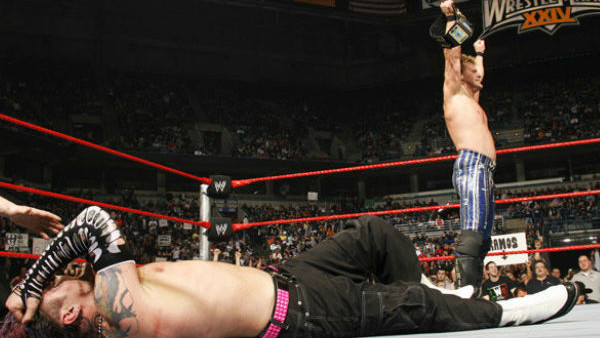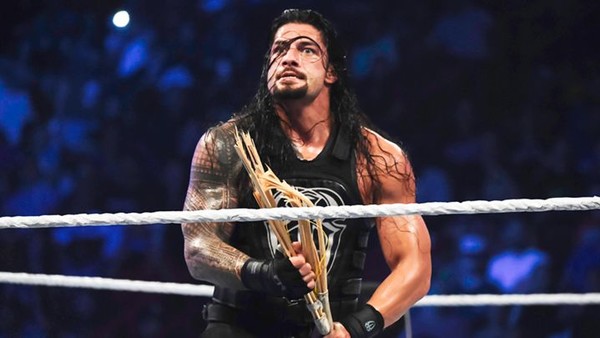The Murky Realities Of The WWE Wellness Policy

The floodgates opened following the June 2007 tragedy that unfolded in the Benoit household. Chris Benoit's slaying of his young son Daniel and wife Nancy hours before killing himself couldn't have been a bigger indication of the true state of talent 'Wellness'. Unlike 'Sports Entertainment', this gimmicky phrase now carried heft McMahon hadn't expected. Chris Benoit was not a well man, with the studies on his body and brain in the days, weeks, months and years that followed speaking to the fact. A head mangled by countless concussions and crumbling mental health sat atop shoulders artificially enhanced by performance-enhancing drugs supported by a heart pushed daily by various other substances required just to make it through the day.
Steroids were no longer the problem - just part of it. A big picture overhaul was required, but WWE's hand was forced first anyway by the police raiding wrestler sweet shop Signature Pharmacy as part of investigations triggered by the Benoit case. The Florida-based pharmacy had a customer list longer than 'The Crippler's unshrunken arm that resulted in a double-figure suspension smackdown and the wreckage of WWE's television product in the process.
Names and muscles disappeared from view with alarming regularity, as established names such as Jeff Hardy, Rey Mysterio, William Regal and Randy Orton (again) others served humbling suspensions WWE were now obligated to report publicly. The scale of the changes (in line with the brief onslaught the company received from the wider - and often ill-informed - news media) took back the perception from Vince McMahon that his organisation was a well-managed and maintained public company.
A overarching adjustment to attitudes was needed in the aftermath, and through multiple adaptations to the policy (changes in 2009, 2010, 2011, 2012 and 2013 were big enough to warrant mention at the top of the most recent policy document), the seed planted in the post-Benoit Wellness Policy has blossomed gradually towards protection of the talent. CM Punk may have recently won a lawsuit that protected his various claims against WWE's medical staff, but Daniel Bryan's premature retirement (and carefully monitored comeback) was entirely based on the company's determination to protect his wellbeing - or at least making sure the public thought that too.

Earth-shattering suspensions largely became a thing of the past in the years that followed, with few making a dent on the public consciousness until WWE's top star Roman Reigns was suspended in 2016, just days after rather suspiciously dropping the World Heavyweight Championship relatively early into his true main event run with it.
He "owned it" on Twitter and served it off television, but the company remained tight-lipped on what offending substance emerged from the testing. The fog of confusion has been crafted by design - Vince McMahon has established himself as a man prepared to help, but not one fostering a landscape of everyday under-the-table medicating. The death count has substantially slowed, and WWE's offer of rehabilitation and support to any former performer remains admirable despite both Vince's aforementioned assertions that it's as much to satiate the public as it is to level his karma.
There'll never be a last word on drugs within professional wrestling, but the murky realities of the Wellness Policy remain at large as long as Vince McMahon cares not for the responsibility he still actually has. The wrestlers are looked after far more than their contemporaries of old, but the sandbox within which they play remains laced with glass amongst the grains. Competition is still king and McMahon will only change that when death or taxes require it.